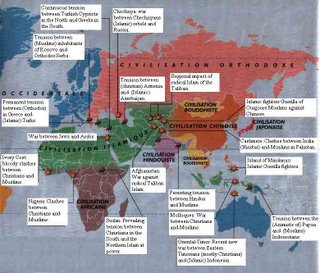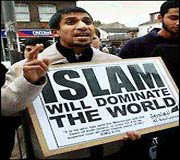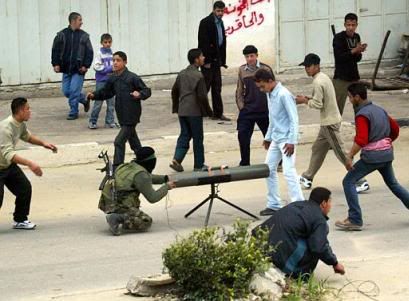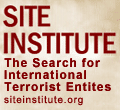Wednesday, April 27, 2011
ISLAMIC Republic of Turkey – the First Fascist State in History
Republic of Turkey – the First Fascist State in History
By Times.am at 6 April, 2011, 11:25 am
The Republics of Armenia and Turkey have been in a long-lasting conflict with no resolution in sight. Therefore a proper assessment of the political system and state ideology of Turkey is extremely important for the Armenian state to build a competent foreign policy and properly position itself in the international arena.
The West has traditionally portrayed the Republic of Turkey which emerged on the ruins of the Ottoman Empire as a secular democratic Muslim state. Even though this cliche is being persistently circulated in the Western media and very often uttered by American and European officials, it is far from reality. Unfortunately, Armenia has not yet dared to offer its own assessment of modern Turkish statehood and tacitly put up with the aforementioned international narrative.
In reality, one of the consequences of the Armenian Genocide was the creation of the first fascist state in Europe’s periphery. The Republic of Turkey had all the core characteristics inherent to fascism and Nazism, which later emerged in Italy, Germany and some other European countries. Below the six main characteristics of Turkish fascism are identified:
1. Turkish chauvinism and genocidal policies. Mustafa Kemal (Ataturk) was formerly himself a member of the governing body of Committee of Union and Progress (CUP), the political organization of murderous Young Turks. Once in power, Ataturk and the Kemalists not only continued the Armenian Genocide, but directed their tested policies of extermination of an entire people against Greeks and other ethnic minorities. In Eastern Armenia alone, the Kemalists destroyed 200,000 Armenians (1920-1921), in Smyrna – 100,000 Greeks and Armenians (September 1922), in the Black Sea regions – about 300,000 Pontian Greeks (1919-1923). They also continued the Genocide against the Assyrians, of whom about 500,000 were annihilated by the Turkish forces from 1915 to 1923. Deportations, mass exterminations, political and cultural repressions against the Kurds, the second largest ethnic group in modern Turkey, began immediately after the Armenian Genocide and continue to this day. All Kurdish attempts to protect their basic national and human rights were brutally suppressed in 1925, 1927, and 1937. In 1980s and 1990s, more than a million Kurds were deported to large cities (during these deportations, according to various estimates, two to three thousand Kurdish villages were destroyed).
Turkish chauvinism was legislatively approved in the Constitution of 1937 under the auspicious name of “nationalism” (Milliyetçilik ), openly aiming to assimilate non-Turkic ethnic groups and legally identifying them as Turks. Although later the concept of Turkish “nationalism” was interpreted in different ways, its chauvinistic nature and essence has remained unchanged.
The modern discipline of Holocaust and Genocide Studies identifies the denial of genocide as an extension of genocidal policies. Gregory Stanton, former President of the International Association of Genocide Scholars, emphasizes that “Denial is the final stage of genocide. It is a continuing attempt to destroy the victim group psychologically and culturally, to deny its members even the memory of the murders of their relatives. That is what the Turkish government today is doing to Armenians around the world.” Elie Wiesel, the famous Holocaust survivor and political activist, has repeatedly called Turkey’s 90-year-old campaign to cover up the Armenian genocide a double killing, since it strives to kill the memory of the original atrocities. The Armenian government should have assessed Turkish denialism in similar and even graver terms, but to this date it has failed to do so for no apparent reason.
In contemporary democratic Germany it is simply impossible to imagine a street or institution named in honor of any of the leaders of the Third Reich – indeed it is legally prohibited! Meanwhile, in “democratic” Turkey the leaders of CUP, i.e. the criminal organizers and perpetrators of the Armenian Genocide, are openly glorified. For example, a district in Istanbul, a few avenues and streets in different parts of Istanbul, boulevards in Ankara and Edirne, primary schools in Istanbul, Ankara and Izmir, and a high school in Konya are all named after Talat Pasha, Minister of the Interior and (in 1917-1918) Grand Vizier of the Ottoman Empire, who personally orchestrated the Armenian Genocide.
“Democratic” Turkey also actively uses the infamous Article 301 of its Criminal Code (“insulting Turkishness”, in 2008 changed to “insulting the Turkish nation”). This law, among other things, makes the recognition of the Armenian Genocide a crime. About 50 trials have already been held based on this article.
2. Totalitarianism. Up to the late 1940s Turkey was a one-party state. However, even today “democratic” Turkey periodically imposes a ban on one political party or another (even those elected to parliament), while its leaders are thrown in jail on trumped-up political charges. The last of a series of such cases occurred in December 2009, when the Turkish Constitutional Court banned the pro-Kurdish Democratic Society Party (DTP), which had 21 MPs. All the property of DTP was confiscated by the state. This even prompted the European Union, which by and large turns a blind eye to the racist repressions against 20 million Kurds in Turkey, to remind Ankara that “the dissolution of political parties is an exceptional measure that should be used with utmost restraint.”
Turkey’s state propaganda, all-inclusive revision and falsification of the Ottoman and modern Turkish history through carefully controlled scholarship, school curricula, and legally enforced taboos, including severe restraints on free access to information and freedom of expression, resulted in effective brainwashing of its own population.
3. Statism (etatism). The Turkish Constitution of 1937 strengthened the regulatory role of the state not only in the economy, but also in ideology.
4. Anti-communism. Ataturk, despite his friendship with the Soviet Union, was a staunch anti-communist. The Communist Party of Turkey has been banned since 1923 and remained illegal throughout its whole history, having been routinely subjected to most brutal state repressions.
5. Leaderism and the cult of personality. In Turkey, the cult of Ataturk is still in full bloom. Statues and monuments of Ataturk are installed in every city, his portraits are hung in all government and administrative institutions, as well as in school classrooms, and his portraits are on banknotes and coins of all denominations. Criticism of his life activities and biography are criminalized and carrying Ataturk as one’s last name is banned.
6. Militarism and aggression. Turkey is one of the most militarized countries on earth, with the eighth-largest army in the world and second only to the United States in NATO. The decisive sway of the Turkish military on domestic politics is well known: one only needs to recall the three coups d’état carried out by the Turkish army in 1960, 1971 and 1980, as well as the harsh ousting of Islamist Prime Minister N. Erbakan from power in 1997 (incidentally, his ruling “Welfare Party” was also banned).
The Republic of Turkey has repeatedly resorted to military force or threat of force against neighboring countries, such as Syria, Cyprus, Iraq, Greece, and Armenia. The Northern part of Cyprus, Syria’s district of Alexandretta, and the western part of Armenia still remain occupied. The Turkish army also regularly invades Northern Iraq.
In 1920, the first Republic of Armenia fell under the blows of Kemalists. Indeed, the direct order that Karabekir-Pasha received from Mustafa Kemal literally specified “to destroy Armenia morally and physically.” Immediately after the collapse of the Soviet Union, Turkey’s policy towards the “third” Republic of Armenia became explicitly aggressive in nature once again, including an ongoing land-blockade, refusal to establish diplomatic relations, enduring Armenian Genocide denial, support and assistance to Azerbaijan in its preparations for a new military venture against Armenia, etc.
The emergence and subsequent superstructural metamorphosis of fascism in Turkey was not adequately evaluated by Soviet/Russian or Western historiographies and neither was it reflected in international legal and political documents. However, this should not lead anyone astray. Generally, Turkophilia in political and academic circles in both the West and USSR/Russia, is a quite multi-faceted phenomenon and a separate topic for discussion. Here an incomplete explanation will suffice: the USSR was simply unable to call Ataturk a fascist, because “the leader of the world proletariat” Vladimir Lenin and Ataturk signed the infamous Moscow Treaty of “Friendship and Brotherhood” on March 16, 1921 (incidentally, exactly 90 years ago). Meanwhile, the West avoided such an unfavorable evaluation, because Turkey has historically been considered – and actually was – a barrier against Russia/Soviet Union, and a key strategic ally. Turkey’s alliance with the West was legally formalized by its accession to NATO in 1952.
If the international community (alias “the great powers”) does not adequately characterize the fascist essence of the modern Turkish state, this is simply because it has not been interested in such an exposé. But independent Armenia, by failing to officially identify and denounce the fascist nature of Turkish state, not only refuses to clearly see and understand the true ideology, strategic goals and calculations of its age-old archenemy, but also deprives itself of the chance to present properly its own dire geostrategic situation to the world. After all, Armenia’s present security predicaments are a direct result of crimes by Turkish fascism!
Attempts to rehabilitate Turkey without having it incur its due responsibility – in particular, without the territorial restitutions and other compensations to Armenia – can lead to new and repeated genocides. This is the main conclusion that the international community has yet to draw.
ARMEN AYVAZYAN
Doctor of Political Sciences
“Hayastani Zrucakic”, N: 10 (173 ), 18 March, 2011
http://times.am/2011/04/06/republic-of-turkey-%E2%80%93-the-first-fascist-state-in-history/
Tags: Armenia, Attaturk, Erdogan, fascism in the Muslim world, fascism in Turkey, flotilla, Gaza, History, Islam, Islamic fascism, Islamic supremacy, Islamofascism, Middle East, Muslims, Palestine, racism, racism in Islam, racism in Turkey, Turkey, Young Turks
Labels: History, islamofascism, Turkey

































